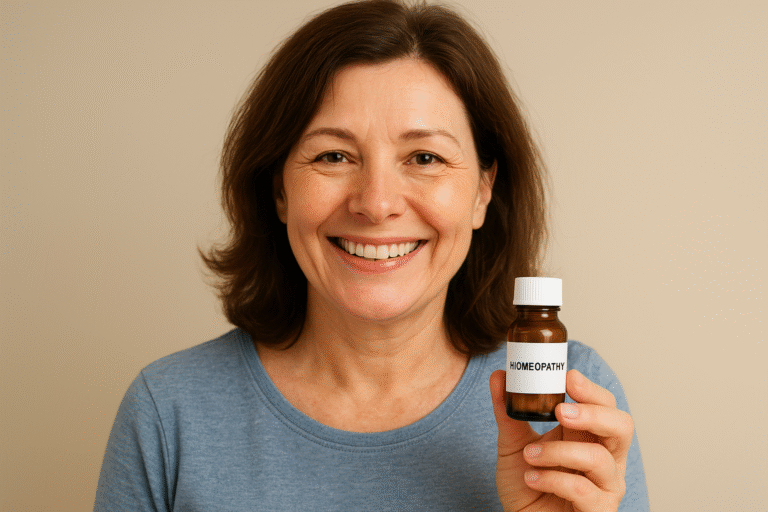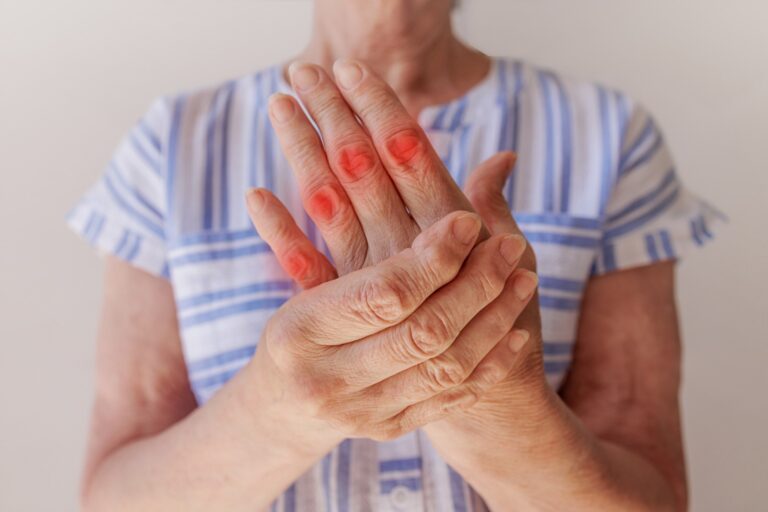Introduction:
Autoimmune diseases are complex conditions in which the immune system mistakenly attacks healthy cells and tissues in the body. Conventional treatments often focus on suppressing the immune response or managing symptoms, but homoeopathy offers a different approach.
Once considered rare, today autoimmune disease has become the highest prevailing disease in India. I am surprised to see the rates of increasing cases in all age groups both in men and women. Global data during the recent Covid-19 pandemic shows there were clear sex-related differences and outcomes with the predominance of women affecting more than men. The risk of autoimmune diseases prevalence in India to post covid patients is increasing.https://www.thelancet.com/journals/eclinm/article/PIIS2589-5370(22)00512-0/fulltext
What are autoimmune diseases?
Autoimmune as the word itself says the body’s own immune system mistakes its own organ and tissues as a foreign and starts producing antibodies towards its own cells. It affects one or more than one organ of the body. Like our watchman who is to protect us, he himself attacks us. Something has gone absurd in our immune system.
Examples of common autoimmune diseases are.
- Multiple sclerosis.
- Systemic lupus erythematosus.
- Type I diabetes.
- Myasthenia gravis.
- Pernicious anemia.
- Reactive arthritis.
- Rheumatoid arthritis.
- Sjögren syndrome.
- Hashimotis thyroiditis.
- Psoriasis.
CAUSES AND TRIGGERS
The exact cause is unknown but some factors which can be contributing are genetic, environmental, chemical factors.
1. Genetic: certain genes are found to be associated with an increased risk of autoimmune diseases.
2. Environmental factors such infections, toxins, and chemicals may trigger.
- virus : COVID 19 , Epstein bar virus, hepatitis c, has been linked to the development of autoimmune diseases.
- Exposure to certain chemicals, such as solvents, pesticides, and industrial pollutants.
3. Hormonal factors: Women are more susceptible to autoimmune diseases, suggesting a hormonal influence. Fluctuations in hormone levels during puberty, pregnancy, and menopause.
4. Dysregulation of the immune system: As the immune system has issues in recognizing “self ” from “non self”. Erractic response is seen in system of various immunological abnormalities like abnormal T cell function and B cell dysfunction can also be the reason.
5. Gut health and microbiome imbalance are crucial in immune regulation.
6. Stress and psychological factors: It plays a crucial role in the exciting and trigger immunity. chronic stress, trauma and emotional factors can potentially trigger and exaggerate autoimmune diseases.

WHEN TO THINK ABOUT AUTOIMMUNE DISEASES?
- Chronic and persistent symptoms: when you have complaints such as fatigue, joint pain, muscle weakness, skin rashes, gastrointestinal issues, or unexplained fever for quite a long time.
- EARLY ONSET OF COMPLAINTS:Like person of 20-30 years age having above mentioned complaints, when do not expect.
- Family history of any autoimmune disorders.
- Multiple systems involved: Multiple organs or systems involved such as joint pain along with skin rashes or gastrointestinal problems, unusual swelling of the joints along with weight loss, eye complaints with skin rashes. Reports show changes in urine, signs of infection along with skin complaints, low blood sugar.
- POST COVID SYNDROME: Those who have suffered with COVID or had minimal symptoms or none at all have an onset of sudden above-mentioned complaints like breathlessness, weakness, hair fall, skin changes, and joint complaints. https://pubmed.ncbi.nlm.nih.gov/36633452/
- Failed treatment attempts: Even continued specific treatment for a particular symptom shows no improvement or complaints become worse.
DIAGNOSIS AND PROGNOSIS:
- Medical History: The first step is information about symptoms, their duration, and any family history of autoimmune diseases.
- Physical Examination: A thorough physical examination is conducted to look for signs and symptoms that may indicate an autoimmune disorder. This can include examining the joints, skin, organs, and other affected areas.
- Blood Tests: Blood tests are commonly used to measure certain antibodies and other markers that can indicate the presence of an autoimmune disease. These tests may include antinuclear antibodies (ANA), erythrocyte sedimentation rate (ESR), C-reactive protein (CRP), rheumatoid factor (RF), and specific antibodies related to different autoimmune conditions.
- Imaging Tests: In some cases, imaging tests such as X-rays, ultrasound, CT scans, or MRI may be used to assess the extent of organ damage or inflammation.
- Biopsy: A biopsy involves taking a small sample of affected tissue, such as the skin, kidney, or joint, for examination under a microscope. This can help confirm the presence of autoimmune-related changes in the tissue.
The prognosis of autoimmune diseases varies widely depending on
- the specific condition, its severity. Certain autoimmune diseases can be chronic and progressive, leading to long-term disability and a decreased quality of life.
- the individual’s response to treatment.
Some autoimmune diseases can be managed effectively with medications, lifestyle modifications, and ongoing medical care, allowing individuals to lead relatively normal lives.
Autoimmune diseases are difficult to cure but can be managed well. Early diagnosis, proper treatment are key for managing autoimmune diseases. This point is very important to understand that compliance of the patient with the physician is very important for better outcome.
HOLISTIC APPROACH OF HOMOEOPATHY:
- based on the principle of “like cures like” and individualization.
- treatment based on the physical. mental and emotional details of the individual.
- The main importance is given to the body self-defence mechanism. It is stimulated to give rise to healthy mind and body.
- constitutional treatment is based on the detailed case taking and evaluation of physical and mental symptoms.
- Homoeopathic medicine not only addresses the underlying imbalances of health and promotes long-term healing.
Homoeopathy as a complementary medicine:
- homoeopathy can also be given alongside with conventional medicine.
- medicine also helps in reducing pain and symptoms and reduce the side effects of the medicine.
- In such cases, an integrated approach with the homoeopath and other health care professionals is helpful.
Case studies:
A 55-year lady suffering from Rhuematoid arthritis since 2 years undergoing conventional treatment had complaints of stiffness while getting up from bed in the morning, and difficulty in folding her hands and holding things. She also had complaints of difficulty in sleep and walking and severe pain in the legs. Her complaints started and increased after menopause.
After detailed case-taking and treatment on the basis of mental and physical details, the constitutional remedy was prescribed. She has difficulty in sleep too which also improved in the first follow-up along with stiffness in the morning. She could walk better than before in a month s time. her need to take painkillers was reduced. she could fold her left hand. She was advised to take heat and cold fomentations as required. She has remissions of pain in her hands when she exerts and the weather changes but the intensity has decreased.
COPING:
Coping with an autoimmune disease can be challenging, but there are strategies and lifestyle adjustments that can help improve your quality of life. Here are some tips to consider:
- Educate Yourself: Learn as much as you can about your specific autoimmune disease. Understand its symptoms, triggers, treatment options, and possible complications. Being knowledgeable empowers you to make informed decisions about your health.
- Communicate with your doctor and follow Your Treatment Plan: Consistently adhere to the treatment as prescribed . This may include medications, physical therapy, dietary changes, or other interventions. Be proactive in managing your health and inform your doctor of any side effects or concerns.
- Prioritize Self-Care: Focus on self-care activities that promote physical and emotional well-being. Get adequate sleep, eat a balanced diet, engage in regular exercise.
- Listen to Your Body: Pay attention to your body’s signals and pacing. Pace yourself and avoid pushing beyond your limits. Rest when needed and make modifications to your daily routine or activities to accommodate your energy levels and symptoms.
- Manage Stress: Stress can exacerbate autoimmune disease symptoms. Explore stress-management techniques such as mindfulness, journaling, engaging in hobbies, spending time in nature, or seeking professional help if needed.
- Maintain a Healthy Diet: Although there’s no universal autoimmune disease diet, some individuals find relief by adopting specific dietary modifications.
- Find Gentle Exercise: Regular physical activity can improve overall well-being, reduce inflammation, and alleviate symptoms. Choose exercises that suit your abilities and energy levels, such as walking, swimming, yoga, or tai chi.
- Be Kind to Yourself and Build a Support System: Remember that living with an autoimmune disease can have ups and downs. Be patient and compassionate with yourself. Seek support from friends, family, and support groups. Share your experiences, concerns, and triumphs with others who understand what you’re going through. Online communities can also be valuable resources for connecting with individuals facing similar challenges.
Image courtesy:Freepik











